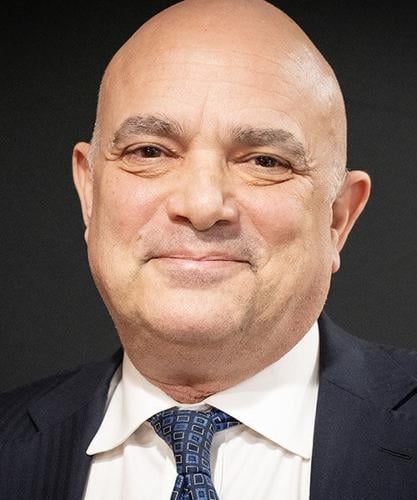
RICHMOND, Va. – An appeals court has vacated and remanded a West Virginia federal court dismissal of public nuisance claims against the three largest opioid distributors in the country.
In its October 28 opinion, the U.S. Fourth Circuit Court of Appeals said U.S. District Court Judge David Faber used an overly narrow interpretation of West Virginia law regarding public nuisance and distributor duties under the Controlled Substances Act.
The opinion directs Faber to reconsider the evidence under a broader standard, focusing on the distributors’ conduct in opioid distribution and its alleged impact on the opioid epidemic in Cabell County and Huntington.

Farrell

Majestro

Webb
“It has been a long journey, and there is still much work to be done,” Paul T. Farrell Jr., lead attorney for the city and county, told The West Virginia Record. “We look forward to another opportunity to seek civil justice for the harms caused by the opioid epidemic.”
A co-counsel for Cabell County agreed.
“I am ecstatic that the court completely vindicated our core legal theories of public nuisance and the duties of opioid distributors under the Federal Controlled Substances Act,” Anthony Majestro told The Record. “We are hopeful that Cabell County and the City of Huntington, two jurisdictions that are among the hardest hit by the opioid epidemic, now will be awarded abatement funds from the opioid distributors to help alleviate the ongoing public nuisance.”
An attorney who worked on the case for Huntington also expressed optimism.
“It’s great to see the Fourth Circuit agreed with what the city and county have been arguing all along,” Rusty Webb told The Record. “The entire state was devastated by the opioid epidemic, but Huntington and Cabell was Ground Zero.”
Huntington Mayor Patrick Farrell said he’s happy the court vacated the sentence.
“The Fourth Circuit Court of Appeals has held what the city argued and believes — that distributors of opioids have a legal duty to prevent the diversion of highly addictive opioids, and that we are able to seek to hold them accountable for the devastating harm that they have caused our city and far too many of its families,” the mayor said in a statement. “We look forward to a new day in court and the chance to apply the law to provide relief for the residents of our community.”
A spokesperson for Cencora, which is the new name for AmerisourceBergen, said the company disagrees with the ruling and is mulling its next move.
“We are disappointed with the Fourth Circuit’s decision and continue to believe Judge Faber correctly concluded AmerisourceBergen substantially complied with its obligations under the Controlled Substance Act,” the spokesperson said in a statement to The Record. “Distributors of pharmaceutical products are asked to walk a legal and ethical tightrope between providing access to necessary medications and acting to prevent diversion of controlled substances.
“We are considering next steps, including potentially seeking further appellate review of the Fourth Circuit’s decision.”
The City of Huntington and Cabell County sued AmerisourceBergen, Cardinal Health, and McKesson in 2017 alleging their over-distribution and lack of adequate monitoring for diversion contributed to the opioid crisis and created a public nuisance.
After a 10-week bench trial in 2021, Faber ruled in 2022 for the drug companies after he said the plaintiffs failed to prove the opioids was a public nuisance. Faber said public nuisance law in West Virginia was limited to interference with public property/resources and did not cover product distribution such as prescription opioids.
Even if such a claim were possible, Faber also ruled Cabell County and Huntington had failed to show unreasonable interference, proximate causation or entitlement to abatement remedies
The city and county appealed Faber’s ruling to the Fourth Circuit.
In January, the Fourth Circuit filed a certified question with the West Virginia Supreme Court of Appeals asking, “Under West Virginia’s common law, can conditions caused by the distribution of a controlled substance constitute a public nuisance and, if so, what are the elements of such a public nuisance claim?”
In May, the state Supreme Court decided not to answer, saying “We resolve that we cannot, at this juncture, answer the question certified … due to the disputed factual findings and related legal conclusions resting on those factual findings.”
The Fourth Circuit disagreed with Faber’s restrictive definition of public nuisance under state law, saying conditions caused by the distribution of controlled substances can, in fact, constitute a public nuisance.
“We observe that public nuisance under state law is broadly defined,” the 49-page Fourth Circuit ruling, written by Senior Circuit Judge Barbara Milano Keenan, states. “Under West Virginia common law, a public nuisance is ‘an act or condition that unlawfully operates to hurt or inconvenience an indefinite number of persons.’ …
“The state Supreme Court also has explained that ‘the distinction between a public nuisance and a private nuisance is that [a public nuisance] affects the general public, and [a private nuisance] injures one person or a limited number of persons only.’ …
“We hold that under West Virginia common law, the conditions resulting from the over-distribution of opioids can constitute a public nuisance.”
The Fourth Circuit also said Faber misinterpreted the scope of duties for opioid distributors under the Controlled Substances Act, particularly regarding threshold-setting and suspicious order reporting. It said Faber also failed to fully consider evidence showing the distributors repeatedly raised pharmacy order limits, potentially enabling large opioid shipments while avoiding suspicious order reporting rules.
The appeals court also criticized his analysis of causation and remoteness for failing to consider whether distributors’ actions directly contributed to the opioid crisis, including supplying pharmacies linked to prolific prescribers.
It also rejected Faber’s stance that abatement remedies must only address the cessation of conduct, finding that more expansive remedies — such as possible funding for harm reduction — should not be categorically excluded.
In vacating the lower court ruling, the Fourth Circuit sent it back to Faber with instructions to apply the correct standards for public nuisance, distributor duties, causation and remedies.
The district court now must reconsider the claims in light of the broader standards set forth by the Fourth Circuit, including full review of evidence about distributor practices and their alleged contribution to the opioid epidemic in West Virginia.
U.S. Fourth Circuit Court of Appeals case number 22-1819













